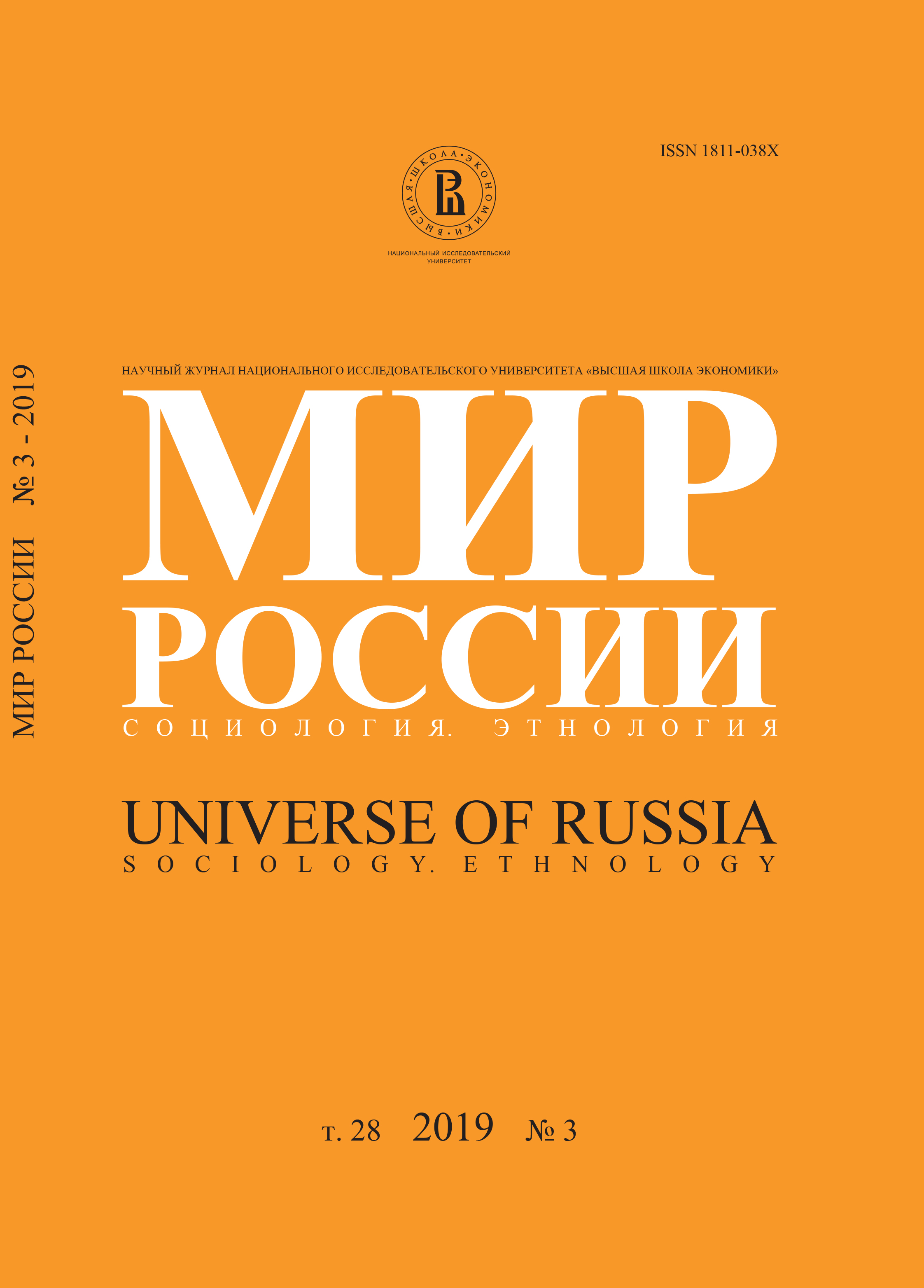From Modernization to Import Substitution: Perspectives on State Development ‘from Above’ and ‘from Below’
Abstract
Citation: Biziukova V. (2019) From Modernization to Import Substitution: Perspectives on State Development ‘from Above’ and ‘from Below’. Mir Rossii, vol. 28, no 3, pp. 67–87. DOI: 10.17323/1811-038X-2019-28-3-67-87
This paper focuses on the policies of the embargo and import substitution in the context of previous state projects of socio-economic development in Russia. It explores how the country’s development, its means and objectives, are envisaged by the state and members of the new middle classes. In particular, this study inquires into the meanings and interpretations of ‘modernization’ and puts this concept into the context of broader theoretical debates. The paper follows the discussion on the ‘modernization’ and ‘neo-modernization’ paradigms and demonstrates how the term has acquired a primarily instrumental meaning as part of an increasingly particularistic project of socio-political development embraced by the Russian state. The analysis traces how this state vision resonates with, and differs from, the perspectives of the new middle classes on state development, in particular, the wide-spread sympathies towards ‘technocratic’ governance. Finally, it discusses the political implications of these interpretations and the ways they shape the enactment of the new policies ‘on the ground’.






